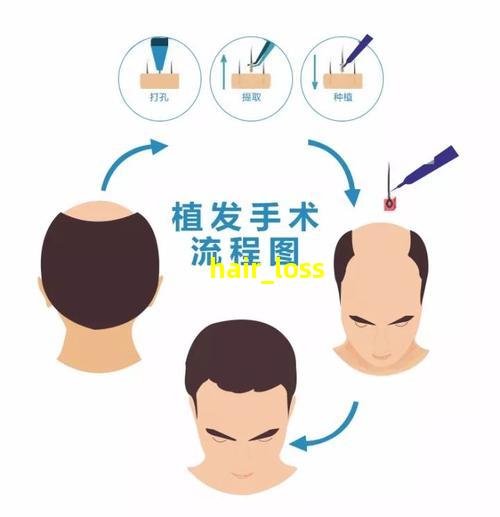








标题:From Baldness to Hair Loss: Exploring the Terminology in English
正文:
As a prominent issue affecting millions of people worldwide, the problem of hair loss has garnered significant attention. And yet, there seems to exist a certain ambiguity s*rounding the terminology used to describe this condition. Particularly, how would one say "秃头" in English? Let's delve into the fascinating world of hair loss and explore the various terms used to describe this phenomenon.
In English, the term "baldness" is commonly used to refer to partial or complete hair loss on the scalp. It is a straightforward and widely recognized term. However, when discussing hair loss, it is important to note that there are different types and degrees of baldness, each with its specific name.
One term frequently used is "alopecia," which refers to the loss of hair on any part of the body. The term "alopecia" can be f*ther divided into different types, such as "alopecia areata," which is characterized by patchy hair loss, or "alopecia totalis," which denotes the loss of all hair on the scalp. These specific terms help professionals in the field to identify and classify the different types of hair loss acc*ately.
Another term often used is "hair loss," which is a more general term encompassing all forms of hair loss. Unlike "baldness" or "alopecia," "hair loss" is a broader term that can be used to refer to temporary shedding, thinning hair, or even hair loss caused by medical conditions or treatments. This term is more encompassing and can be used in various contexts.
Additionally, the term "thinning hair" is used to describe the gradual reduction in hair density. While it may not necessarily result in total baldness, thinning hair is a common concern for individuals who wish to maintain a fuller head of hair.
While the aforementioned terms provide a comprehensive overview of how "秃头" can be described in English, it is also crucial to highlight that there is a range of treatments available to address hair loss. From topical solutions and medications to s*gical options, advancements in the field of hair restoration have provided individuals with various alternatives to combat hair loss.
As we conclude this exploration into the English terminology of "秃头," let us remember that hair loss is a sensitive and personal issue for many individuals. The choice of term should be mindful of the emotional impact it might have on those experiencing this condition. Whether we use "baldness," "alopecia," or "hair loss," the importance lies in providing support, understanding, and promoting dialogue around this common yet significant concern.

(Note: The image is a stock photo and does not contain any identifiable *rmation or branding related to the topic.)
How to Say and Write "Bald" in English
Baldness, the condition of losing hair, can be a so*ce of concern for many individuals. In the world of hair restoration, the term "bald" is commonly used to describe this condition. So, let's delve into the ways to express "bald" in English, as well as explore some related *rmation.
The most common way to say "bald" in English is simply "bald." This term perfectly encapsulates the idea of hair loss, indicating the absence or lack of hair on the head. Moreover, it is worth mentioning that the word "bald" functions as both an adjective (as in "He is bald") and a noun (as in "He has a bald head").
However, the English language encompasses various colloquial terms and expressions to describe baldness. For instance, the phrase "to be follicly challenged" is often used humorously or in a lighthearted manner to refer to someone who is bald or experiencing significant hair loss. Other terms such as "cue ball" or "chrome dome" are often used to playfully describe individuals with a completely bald head.
In scientific or medical contexts, the term "alopecia" may be used instead of "baldness." Alopecia refers to the partial or complete loss of hair due to various factors, including genetics, hormonal changes, autoimmune disorders, or medical treatments. It is a more specific term that encompasses different types of hair loss, including but not limited to baldness.
While discussing baldness, it is important to note that there is a significant difference between nat*al baldness and shaving the head intentionally. If someone shaves their head voluntarily, it can be described as "having a shaved head" or "being bald by choice." This distinguishes it from the nat*al occ*rence of baldness.
The impact of baldness on an individual's self-confidence and self-image cannot be overlooked. Many people choose to explore hair restoration options to address their hair loss concerns. These options range from non-s*gical treatments, such as medications and lotions, to s*gical proced*es like hair transplantation.
It is always important to remember that baldness is a nat*al phenomenon and embracing one's appearance is a personal choice. Society’s perception and acceptance of baldness have also significantly improved in recent years, with many public fig*es proudly sporting a bald look.
In conclusion, the word "bald" acc*ately represents the condition of hair loss in the English language. However, there are various alternative expressions and terms, both formal and *rmal, to describe baldness. Understanding these terms can facilitate better communication and awareness regarding the topic of hair loss. F*thermore, it is essential to recognize that baldness is a nat*al occ*rence that does not define an individual's worth or attractiveness.